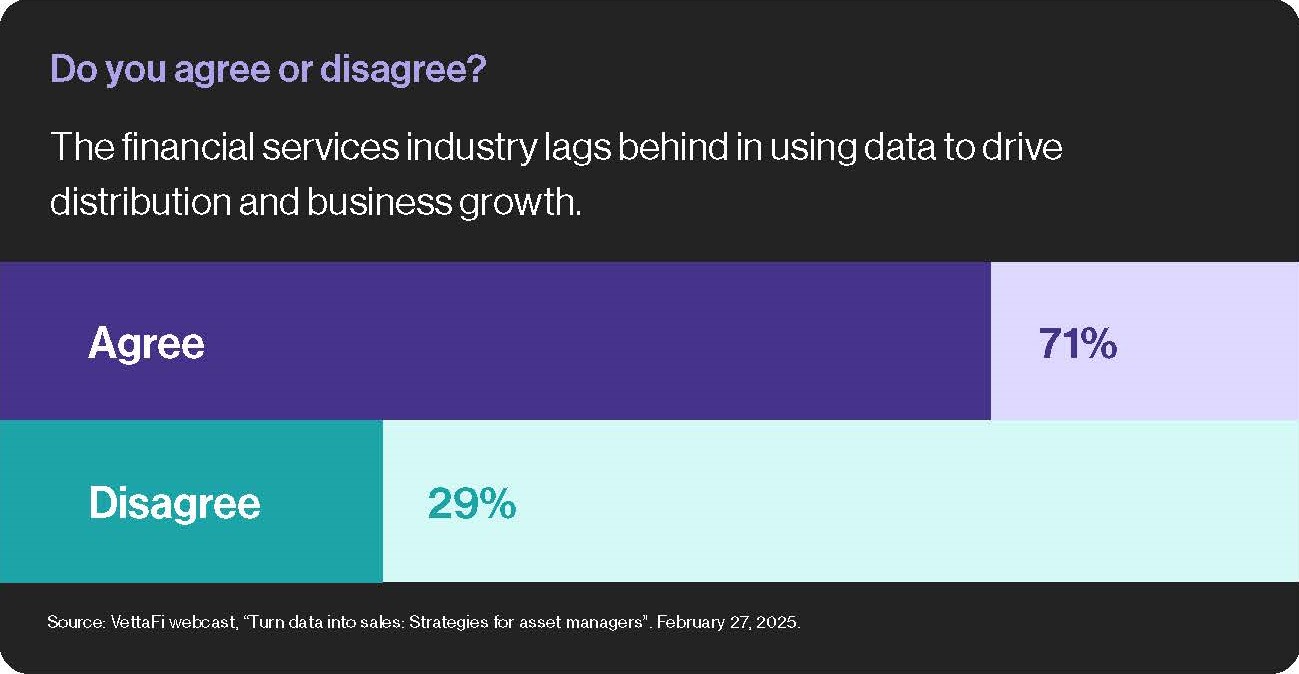How to master data for sales growth
Consumer-facing apps, like UberEats, deploy customer behavioral data to drive revenue. By tracking the types of foods a consumer prefers, they personalize promotions and offers to match likely purchase behavior. After an order is placed, they follow up with recommendations based on behavioral data—highlighting items that are easily added to the order. In short, evolved data practices mean better predictive analytics. This translates to sales efficiency, more opportunities, and more profitable sales. Asset managers, by comparison, are now starting to leverage investor behavioral data for predictive analytics. It is not yet a widespread practice, but it is the key to unlocking success.
According to Mckinsey & Co., organizations that leverage customer behavioral data outperform their peers by 95% in sales growth and more than 25% in gross margin.
Data-driven decision-making

A recent poll of asset managers shows that they largely agreed that financial services lags when it comes to using data to drive distribution and business growth.
Data can provide critical insights and inform strategies that can lead firms to perform better and grow faster than firms who might not have access to or properly deploy data. Distribution teams in financial services have been slow to integrate data—creating a major opportunity for firms that move early toward data-driven decision-making. Companies that can stitch together relevant, timely data can use it to inform strategies and capture a bigger market share than companies that are haphazard in their use of data or lacking in quality data.






